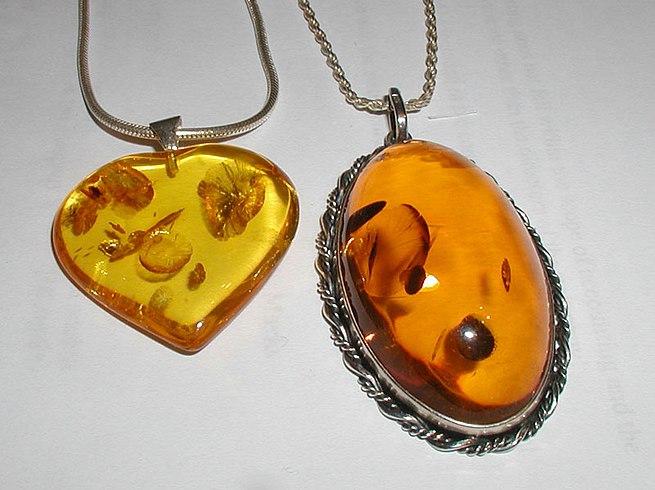
-
Pendant
The word pendant derives from the Latin word pendere and Old French word pendr, both of which translate to “to hang down”. It comes in the form of a loose-hanging piece of jewellery, generally attached by a small loop to a necklace, which may be known as a “pendant necklace”. A pendant earring is an earring with a piece hanging down. In modern French, pendant is the gerund form of pendre (” to hang”) and also means “during”. The extent to which the design of a pendant can be incorporated into an overall necklace makes it not always accurate to treat them as separate items.In some cases, though, the separation between necklace and pendant is far clearer.
-
Pendent
Pendent is an adjective that describes the condition of hanging, either literally, or figuratively, as in undecided or incomplete. To be distinguished from the spelling “pendant”, which is the noun.
In botany and anatomy the term applies to hanging forms of organs such as leaves, branches, limbs and the like, that otherwise might be rigid or erect.
In sigillography, a pendent seal is one that hangs loose from its associated document by cords, ribbons, or a parchment tag or tail: it is thus distinguished from an applied seal, which is applied directly to the face of the paper or parchment on which the document is written.
In various senses, such as legal matters, pendent can mean “pending” or conditional on future developments.
In grammar a pendent sentence is incomplete in some formal sense, for example lacking a finite verb.
Something pendent may be viewed as any member of a support system (e.g. a section of a dome or, organically, a parent/guardian in a nuclear family). A pendent component of a structure or system requires one or more of the same as itself to be functional. For example, one playing card in a house of cards requires another against it in order to maintain stability. Likewise the segments of certain types of dome rely upon each other for support, as do the individual blocks or timber frames which make up a dome whether segmented or not. The whole dome may in turn be supported by pendentives (which in turn support each other). In the construction of arches and domes, the pendent condition commonly leads to special requirements for timber centring or similar expedients during construction: when the structure is completed it becomes self-supporting and the temporary structure can be removed.
-
Pendant (noun)
A supporting post attached to the main rafter. from 14th c.
-
Pendant (noun)
A piece of jewellery which hangs down as an ornament, especially worn on a chain around the neck. from 15th c.
-
Pendant (noun)
The dangling part of an earring. from 16th c.
-
Pendant (noun)
A short rope hanging down, used to attach hooks for tackles; a pennant. from 15th c.
-
Pendant (noun)
One of a pair; a counterpart.
“One vase is the pendant to the other vase.”
-
Pendant (noun)
An appendix or addition, as to a book.
-
Pendant (noun)
Testicles. 15th-17th c.
-
Pendant (noun)
A pendulum.
-
Pendant (noun)
The stem and ring of a watch, by which it is suspended.
-
Pendant (noun)
A lamp hanging from the roof.
-
Pendant (noun)
An ornament of wood or of stone hanging downwards from a roof.
-
Pendant (noun)
A long narrow flag at the head of the principal mast in a royal ship.
-
Pendent (adjective)
Dangling, drooping, hanging down or suspended.
-
Pendent (adjective)
pending in various senses.
-
Pendent (adjective)
either hanging in some sense, or constructed of multiple elements such as the voussoirs of an arch or the pendentives of a dome, none of which can stand on its own, but which in combination are stable.
-
Pendent (adjective)
incomplete in some sense, such as lacking a finite verb.
-
Pendent (adjective)
Projecting over something; overhanging.
